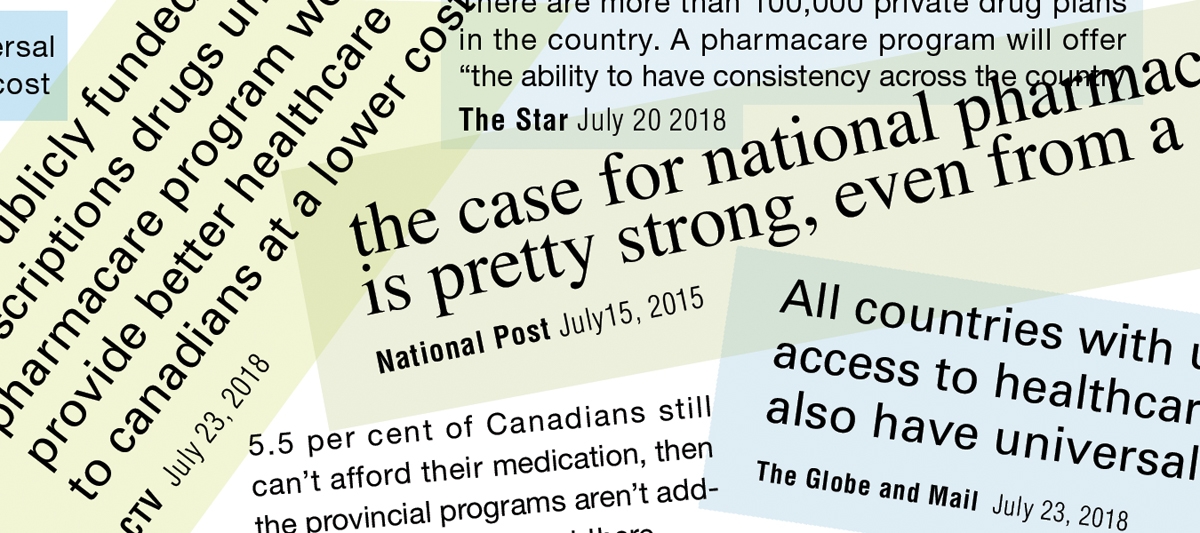
National Pharmacare simply makes cents
By: Keith Newman, board member with the Canadian Health Coalition
Will the federal government establish a national public drug plan? Our universal system of health care now covers doctors and hospitals and we are rightly proud of it.
It’s time to include prescription drugs.
Every other high-income country with universal public health care provides drug coverage, and so should we.
We labour under a patchwork of thousands of plans provided at work or by the provinces and territories, forcing millions of people to pay part or all the costs out of their own pockets.
This patchwork is profoundly unfair. Millions of Canadians are left without the drugs they need because they can’t afford them. This includes the self-employed, workers with no workplace plan, the unemployed, students and many people who can’t afford their co-pays.
The human cost is appalling. People get sick, many are needlessly hospitalized, and some are forced to sell their homes to cover drug costs. We have U.S.- style drug coverage with U.S.- style results: it’s unfair, vastly over-priced and inefficient.
Despite excluding about 10 per cent of the population, our patchwork is very expensive.
We pay the second highest prices in the world for drugs; only the U.S. pays more. Why? Other countries bargain lower prices with the negotiating power of covering their whole population. Without this leverage it’s impossible to bargain effectively, so the drug companies charge us top dollar. While the provinces have managed to achieve discounts recently by working together, we still remain far behind most other countries.
Prices for both patented (brand name) and generic drugs are one-third higher in Canada than in France, Italy and the U.K. For generics, we pay twice as much as Sweden, and, astoundingly, nearly three times more than the Netherlands.
Yet getting value for money is quite straightforward. The European countries doing the best job have a single-payer system covering everyone in the country.
For Canada, that means a universal Pharmacare plan coordinated by the federal government in partnership with the provinces. We could bargain as one country and drug companies wanting access to our lucrative market would be required to submit competitive bids. The savings for Canada has been estimated at between $4 and $9 billion, depending on the nature of the plan.
These large savings would come despite the inclusion of millions of previously excluded people receiving 61 million additional prescriptions every year. Doing the right thing would save us vast sums that could be reinvested elsewhere.
We waste money by paying insurance companies and benefit consultants to manage thousands of different work-based plans and for the profits they take to do it. When we go to the doctor or the hospital no insurance company is required, only our health card.
It should be the same for drugs. We could save $2.5 billion by eliminating the work of these middlemen and the tax subsidies our governments give them.
Every major national commission of enquiry has concluded the same thing: include drugs in our universal public health system. The Parliamentary Standing Committee on Health has been studying the issue and is expected to add its name to this list.
In addition to tough bargaining for drug prices, a successful Pharmacare plan would ensure that drugs are provided free of charge like doctors and hospitals, require public management, only cover drugs that are safe and effective, and improve prescribing practices by providing unbiased information that is not influenced by drug companies.
The expected opposition of pharmaceutical companies and the insurance industry has succeeded in preventing Pharmacare in the past. Now, it’s time to move forward with a national public drug plan that covers all Canadians.
It will improve health and reduce costs.








